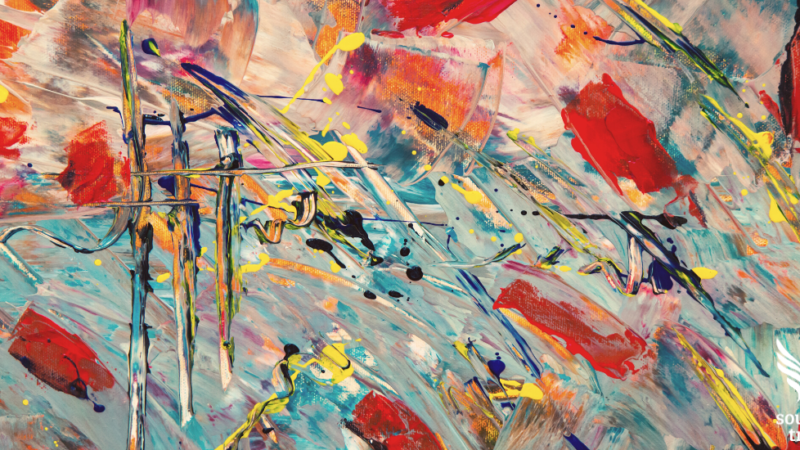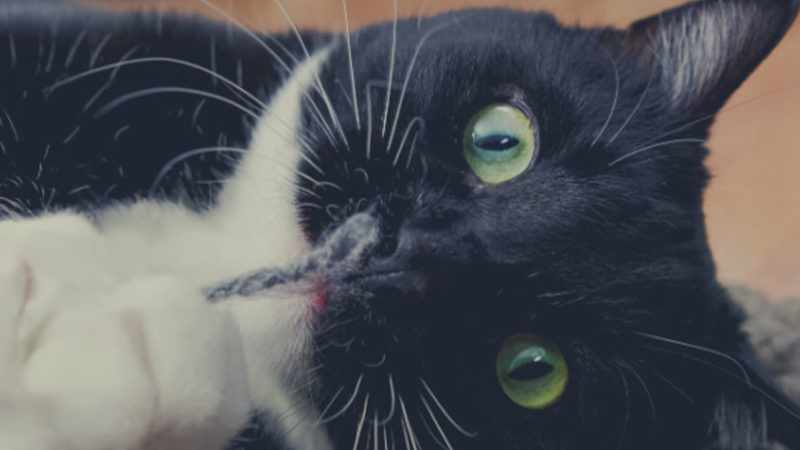A visual tour of gratitude…
We were honored at the 2012 Wake Up Festival to have with us film maker Louie Schwartzberg, to introduce and show us his short piece on gratitude. While this life has so many challenges, uncertainties and, as the Buddha has taught, will inevitably involve suffering and the breaking-open of our hearts, there is an underlying preciousness here. Just by looking up into the sky or into the eyes of someone we love, or listening to the birds, or watching a flower bloom, we enter into timelessness and eternity. Something more than meets the eye is happening here… the miracle that is this life is waiting around every corner, is part of every conversation, and is unfolding throughout every minute of every day.
Enjoy this lovely short film on the power of gratitude and the preciousness of this one sweet life, narrated by our dear friend, Brother David Steindl-Rast:
The Journey of Inner Courage – with Mark Nepo
Enjoy this short teaching from poet, philosopher, and bestselling author Mark Nepo, on the journey of inner courage. No matter where we are in our lives, we all have an edge that we’re being asked to grow at and explore. In order to make genuine contact with life, we must learn to listening with our hearts and to somehow stay open to whatever life presents.
In this video, Mark shares his understanding of courage along with a simple practice for opening to its presence in our daily lives.
4 Ways to Practice Gratitude This Holiday Season
The holiday season can be hectic and overwhelming, with many mixed emotions, from excitement to stress. It’s the perfect time to commit to a daily practice of gratitude which will help you experience more moments of contentment and joy and give you resilience to handle the many challenges (including travel and stressful relatives). And when you share your gratitude with others, you help them feel seen, valued, elevated, and help yourself feel more closely connected to people in your life. Here are four ways to practice gratitude this holiday season.
Say Thank You and Mean It
When you thank someone, be intentional about it and put your heart and appreciation into your words. Take a moment, pause, look them in the eye, smile, and say ‘Thank you’. If there is something specific you want to thank them for, do it, go the extra step, that’s awesome.
Daily Gratitude Bookends
Begin and end your day by writing down a few things you’re grateful for. Literally bookend your day with gratitude. If you’re not a journaling type, that’s fine—how about sharing what you’re grateful for with someone else, like a family member, friend, or co-worker—in-person or via text or email. You won’t just be practicing gratitude for yourself but inspiring them to do it also. Remember to be as specific as possible and don’t neglect really small moments.
Gratitude Zoom
If you’re feeling down or caught in a negativity spiral, pause and challenge yourself to find something you can appreciate within your experience, however small. For example, if you’re sad about being sick and missing out on what you would rather be doing, can you feel grateful that you have medicine or a comfortable place to recover or people around to help care for you?
Gratitude Antidote
When something stresses you out—too much traffic, an annoying colleague, etc.—use it as a reminder to practice gratitude. You don’t have to be grateful for whatever is stressing you out, but use it as a nudge to pause, take a breath, and think of something, however small, that you are grateful for in that moment. When you do this, you prevent your brain from going into a negativity spiral, where one annoying thought brings on another, and another, and another, until you have a really rough day.
 Nataly Kogan is an author (Happier Now), speaker, and the founder of Happier. Her work has been featured in hundreds of media outlets, including the New York Times, the Wall Street Journal, TEDx Boston, SXSW, and Dr Oz. Nataly lives with her husband and daughter in Boston. For more, visit happier.com.
Nataly Kogan is an author (Happier Now), speaker, and the founder of Happier. Her work has been featured in hundreds of media outlets, including the New York Times, the Wall Street Journal, TEDx Boston, SXSW, and Dr Oz. Nataly lives with her husband and daughter in Boston. For more, visit happier.com.
Tips for the Rally Team: How to Support Someone in Their Grief

Tip #1: Claiming your discomfort allows you to show up and be present. From the griever’s perspective, it’s a huge relief to be around those who are willing to be uncomfortable and show up anyway.
If you aren’t sure you should say something—ask. Err on the side of being present. Your effort really is noticed and appreciated.
Tip #2: Don’t be a cheerleader. When things are dark, it’s OK to be dark. Not every corner needs the bright light of encouragement. In a similar vein, don’t encourage someone to have gratitude for the good things that still exist. Good things and horrible things occupy the same space; they don’t cancel each other out.
Do mirror their reality back to them. When they say, “This entirely sucks,” say, “Yes, it does.” It’s amazing how much that helps.
Tip #3: Don’t talk about “later.” When someone you love is in pain, it’s tempting to talk about how great things are going to be for them in the future. Right now, that future is irrelevant. Stay in the present moment, or if the person is talking about the past, join them there. Allow them to choose.
Tip #4: In all things, not just in grief, it’s important to get consent before giving advice or offering strategies. Ask the person whom you’re supporting, “Are you wanting empathy or a strategy right now?” Respect their answer.
Tip #5: Lean in and hang back. Respond to your friend, be curious and responsive to their needs. At the same time, don’t ask the grieving person to do more work. Observe how things are landing for them, but in those early days, please don’t expect—or demand—that they show up with their normal emotional-relational skills. They do not have them. Asking the grieving person to educate you on how best to help is simply not something they can do.
Excerpted from It’s OK That You’re Not OK: Meeting Grief and Loss in a Culture That Doesn’t Understand by Megan Devine.

Megan Devine is a writer, speaker, and advocate for emotional change on a cultural level. She holds a master’s in counseling psychology. Since the tragic loss of her partner in 2009, Megan has emerged as a bold new voice in the world of grief support. Her contributions via her site Refuge in Grief have helped create sanctuary for those in pain and encouragement for those who want to help. For more, visit refugeingrief.com.
Buy your copy of It’s OK That You’re Not OK at your favorite bookseller!
Sounds True | Amazon | Barnes & Noble | Indiebound

The Psychology of Loving Awareness with Jack Kornfield
The Psychology of Loving Awareness with Jack Kornfield, PhD
A Two-Day Training in Transforming Difficulty into Ease and Well-Being
Loving awareness, mindfulness, and compassion have enormous power to benefit every human life. These time-tested tools of Eastern psychology are widely supported by modern neuroscience in more than 3,000 studies and research papers from the past 25 years. With The Psychology of Loving Awareness, master teacher Jack Kornfield invites professionals and meditators alike to join him in a retreat-like setting in San Diego, California to discover the transformative practices from Buddhist psychology that are now being applied in therapy, education, medicine, business, law, athletics, the arts, and in the personal lives of millions.
This two-day training will offer the theory and practice of age-old methods for transforming difficulty into ease and well-being. Through guided practices, wisdom teachings, experiential exercises, case studies, healing stories, dialogue, and inner training, Jack Kornfield will provide an immersive demonstration of the most important principles of Buddhist psychology for awakening the heart and mind—offering skills to aid professionals and deepen the practice of meditators, including:
- Directed healing
- Inner witnessing
- Compassion and forgiveness
- Refining clarity of intention
- Composure in stressful circumstances
- Mindfulness towards the body, thoughts, and emotions
- Fostering resilience, adaptability, and a gracious, wide perspective
When we see the spirit of a leader like Nelson Mandela, the Dalai Lama, or Aung San Suu Kyi, we come to realize what is possible when we meet the world from a place of loving awareness. By cultivating our capacity for balance and attunement, we can experience joyful embodiment of inner liberation, no matter what the outer circumstances.
Join us for two days of powerful practices, heartfelt reminders, clear teachings, personal skill-building, and clinical tools—shared in a warm, retreat-like setting with a loving and open community.

Theresa Reed: Monkey Mind
They say that animals often come to resemble their owners. Or maybe it’s the other way around. I am not sure where that statement came from, but I would probably say there is a nugget of truth to it. Perhaps we do become more like our critters, or more likely, we simply learn from them.
A decade ago, my husband and I adopted a little black cat from the local shelter. As soon as they plopped him in our hands, he began to purr like a motor. We bundled him up, took him home, and named him Monkey.
This name seemed to fit him much better than his original moniker, Phantom. Monkey wasn’t a cat who liked to hide away, and he wasn’t very stealthy either. Instead, he was restless, animated, and liked to play rough. Always in movement, he could barely sit still long enough for a picture. He’s got a true “monkey mind.”
I hate to admit this, but in a way we’re a lot alike.
Like Monkey, I am easily distracted. I blame this on my Gemini ways, but the truth is that’s not an excuse for having too many projects running at the same time with all the technology in the world clamoring for my attention. The blips and dings that alert me that I’ve got mail or texts or other such things keep me in a state of high alert. “What’s happening? What’s going on?” Or, more accurately, “What did I miss?”
Like a pinball whizzing around the flippers and bumpers, my brain is in constant motion. Sometimes I’ve found myself amazed that I was able to get anything done at all.
My writing sessions were punctuated by petting sessions, and cooking a meal required one hand on the spatula while another held a laser pointer to keep Monkey from biting my heels. Disruption via feline was a way of life around my house, so, as you can imagine, it wasn’t easy for a focus-challenged person like myself to remain present much of the time.
One day, I was tapping away on the computer when I noticed Monkey staring down a bug. He was poised to pounce, eyes wide, and completely still. The bug wasn’t moving. Neither was Monkey. This was a total showdown between cat and bug—and neither was going to move until the time was right.
Fascinated, I stopped what I was doing to watch this duel unfold.
The stare-down continued for a few minutes. This cat wasn’t going to flinch until he witnessed a glimmer of activity. Finally, I saw a flicker of movement as the bug slowly lifted his leg. Monkey’s eyes widened as he wriggled his bottom. Suddenly he pounced on the hapless bug, and in an instant, it was over. The bug was lying face up, with no sign of life. Monkey sniffed around it for a second, then sauntered away. The job was done and now it was time for a nap in the sun.
I found myself pondering this long after the deed was over.
How could this cat, who detests the house rules and who seems to be in constant squirm motion, remain so deeply engrossed? How is it that Monkey was able to deftly finish his work while I sat at my desk, still stuck on finding the first opening sentence for my latest project?
The truth was staring me in the face as the little familiar beep that alerted me to an incoming text pulled me away from my work.
I had created a maelstrom of technology and distraction around me. This was preventing me from effectively “killing the bug.” If I was going to be prolific, effective, and calm in both my work and my spiritual practice, I needed to set myself up for success. It was time to commit to making my world distraction-free so I could tame my own monkey mind.
This is an excerpt from a story written by Theresa Reed and featured in The Karma of Cats: Spiritual Wisdom from Our Feline Friends, a compilation of original stories by Kelly McGonigal, Alice Walker, Andrew Harvey, and many more!
Theresa Reed has been a professional, full-time tarot reader for more than 25 years. A recognized expert in the field, she has been a keynote presenter at the Readers Studio, the world’s biggest tarot conference, and coaches tarot entrepreneurs via numerous online courses and her popular podcast, Talking Shop. Theresa lives in Milwaukee, Wisconsin. For more, see thetarotlady.com.







